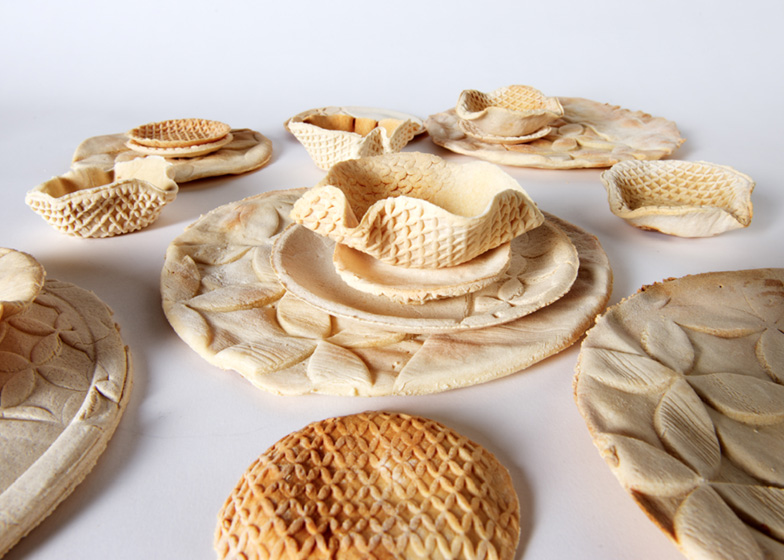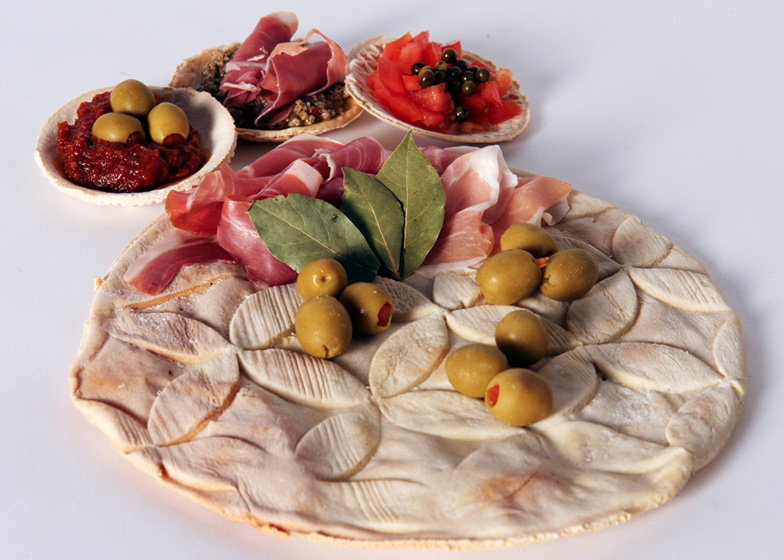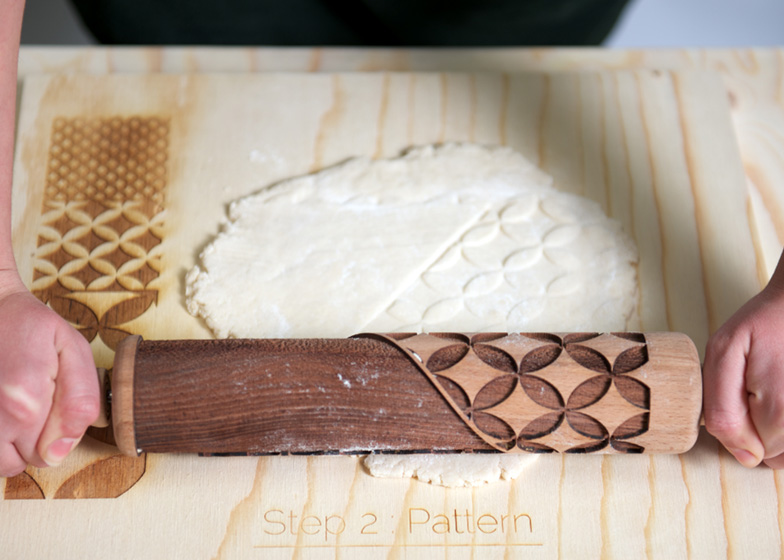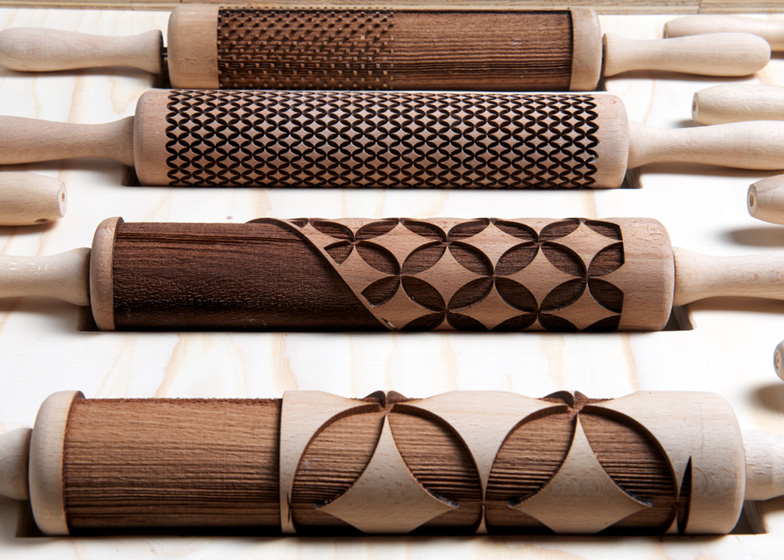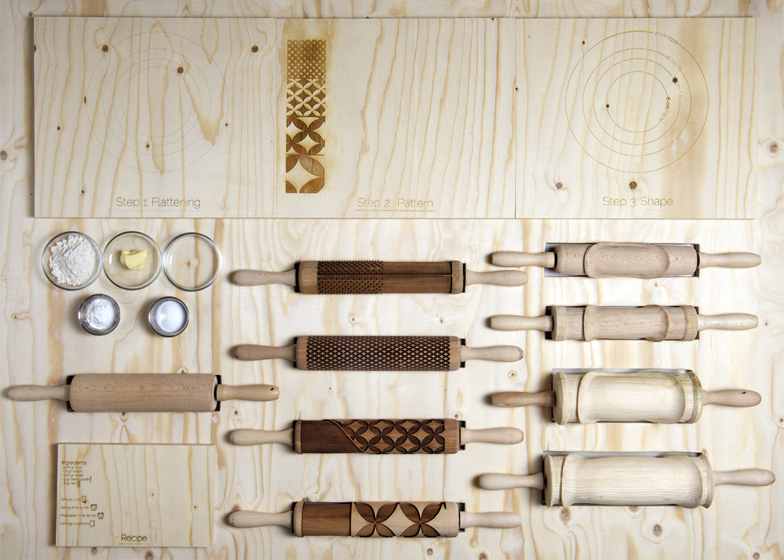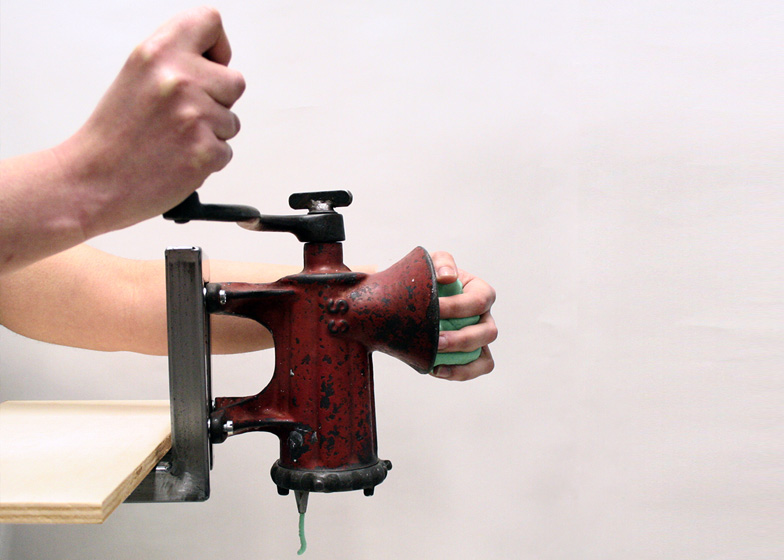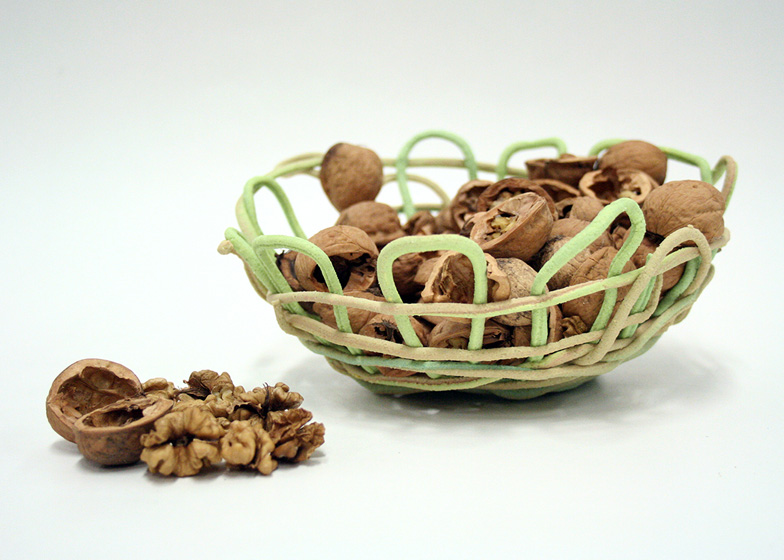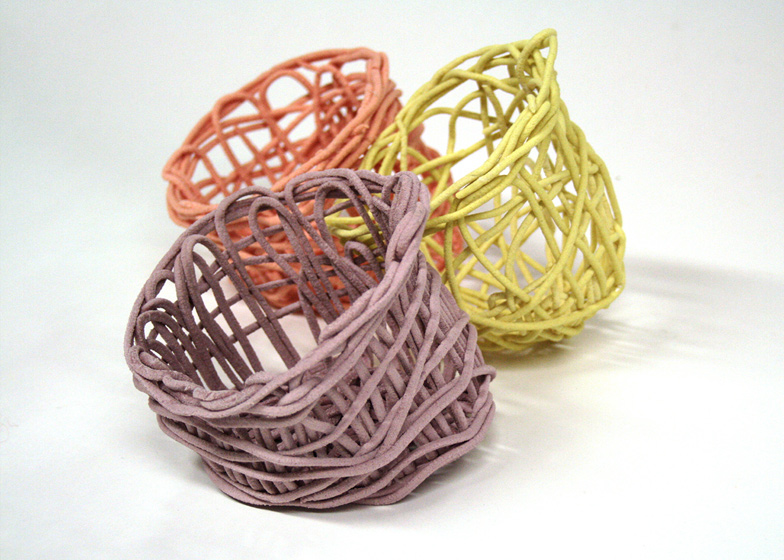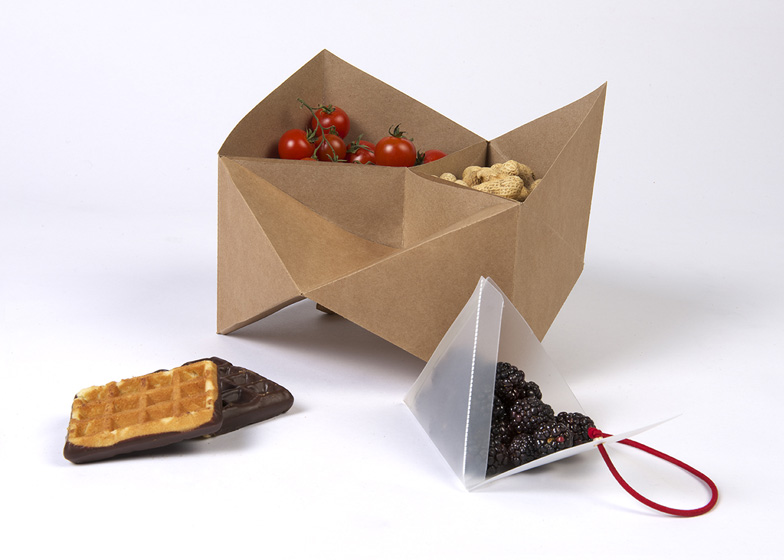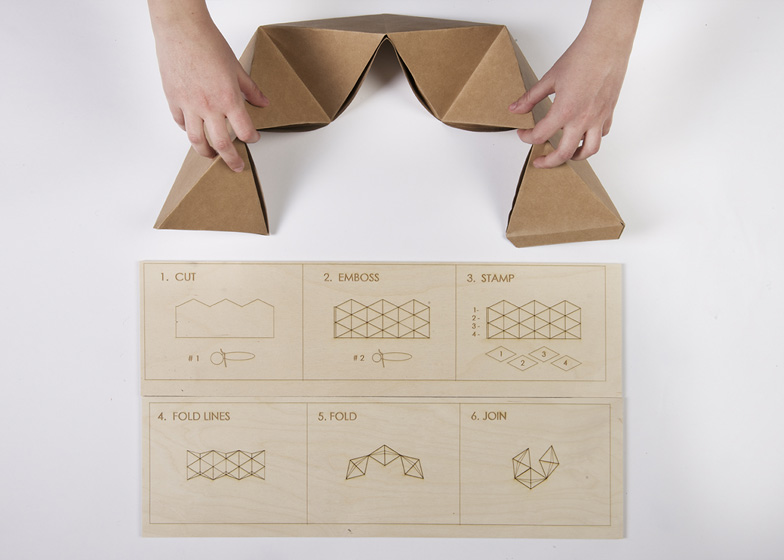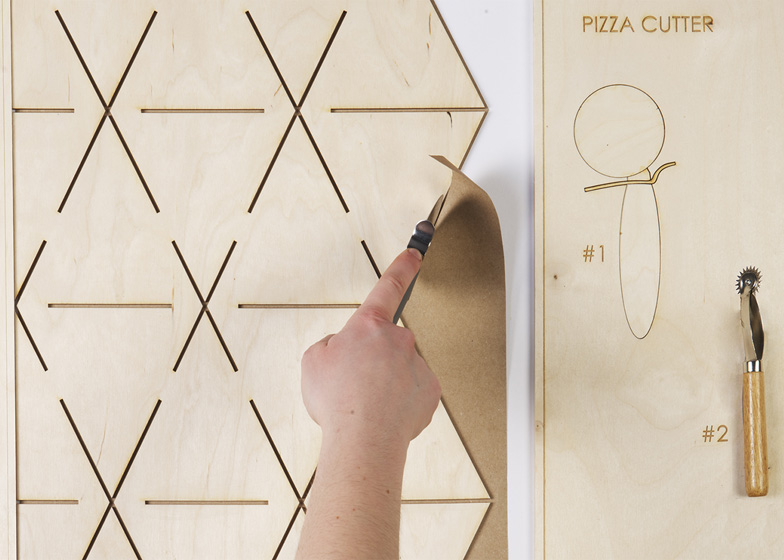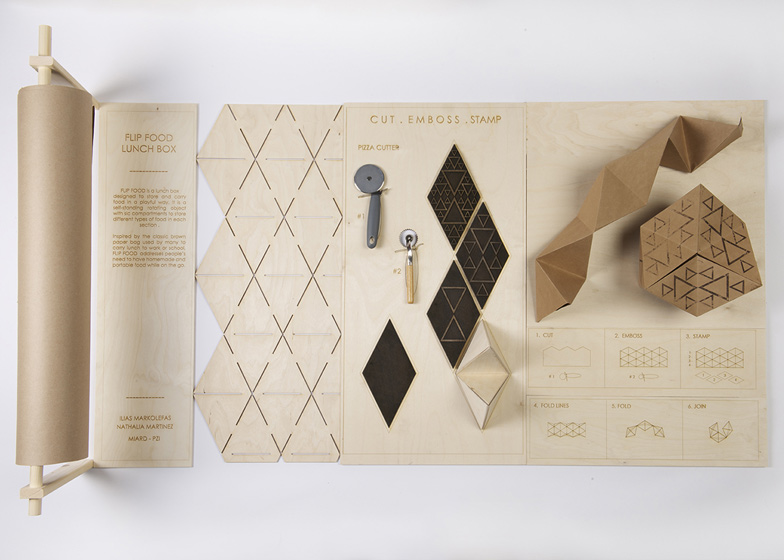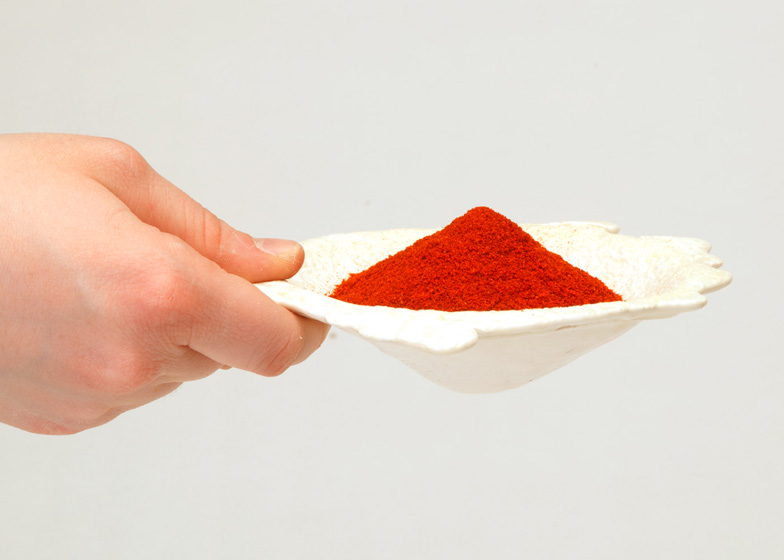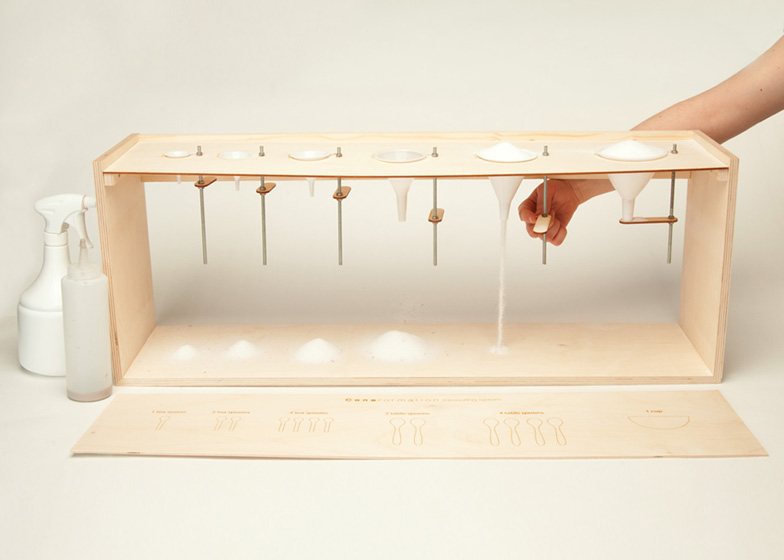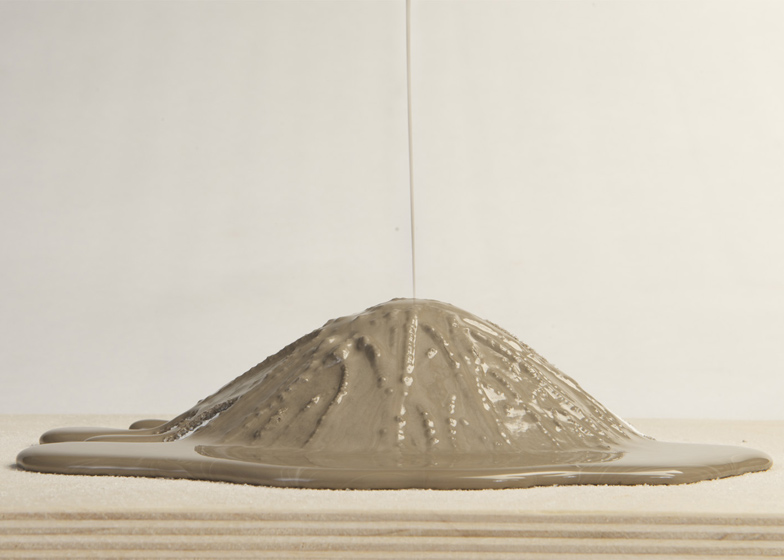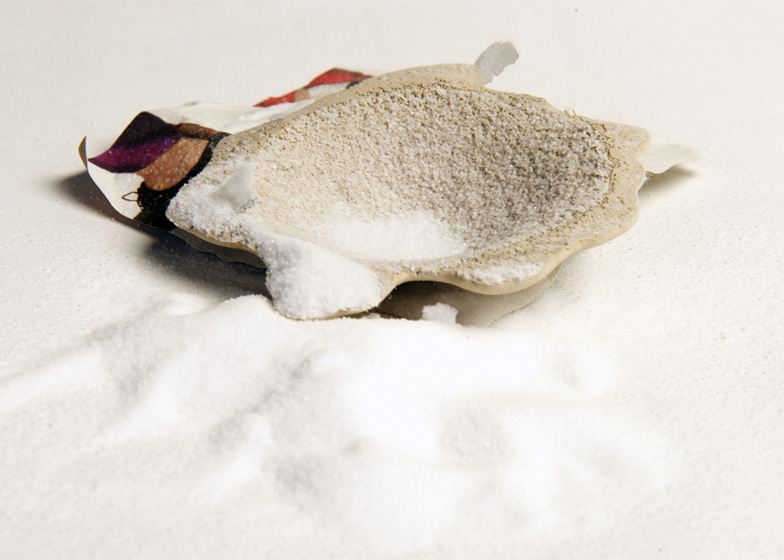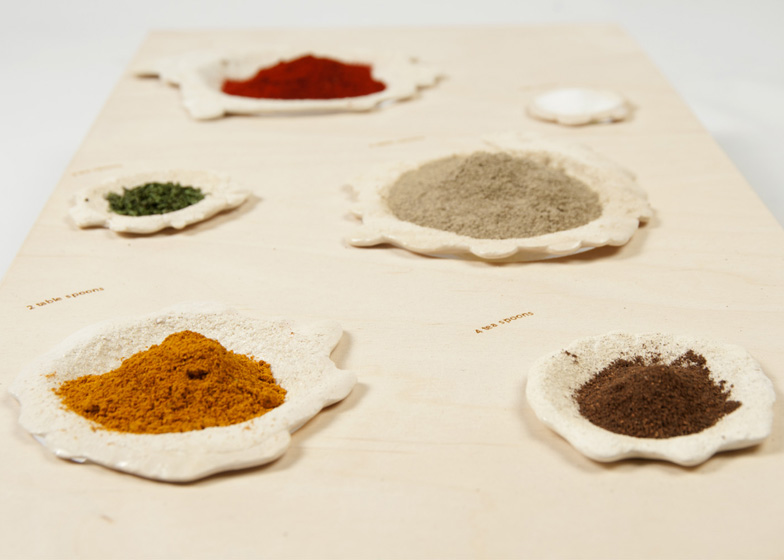Milan 2013: patterned rolling pins that make edible plates and a meat grinder that squeezes out biodegradable bowls are among a set of kitchen products on show at Ventura Lambrate in Milan this week (+ slideshow + movies).
Altered Appliances is a collection of four projects by students from Rotterdam's Piet Zwart Institute, all of which introduce low-tech, hand-powered appliances and ideas to the kitchen.
Rollware is a set of laser-cut rolling pins designed by Joanne Choueiri, Giulia Cosenza and Povilas Raskevicius to produce edible plates and dishes from dough.
One set of four rolling pins is used to imprint patterns on the dough.
Above: Rollware movie
Another set cuts the dough into four different plate sizes before they are baked into tableware.
Extrudough is a collection of biodegradable tableware made with a meat grinder, which designers Bo Baalman and Kine Solberg describe as an "analogue, human-powered 3D printer".
A soft dough is extruded through the meat grinder in thin tubes onto various shaped moulds and then dried at room temperature.
As well as being cheap to produce, the products have a shorter decomposing time than other temporary tableware such as paper plates.
Above: Extrudough movie
The Flip Food lunch box by Ilias Markolefas and Nathalia Martinez Saavedra is inspired by the brown paper bags often used for carrying lunch to school or work.
The designers used stencils to cut a brown paper surface into a flat template, which is then folded and assembled to form a geometric lunchbox with six compartments.
The printed patterns visible on the outside vary depending on the lunchbox's rotation, so they can be used to indicate the type of food held inside.
Reusable plastic protective containers can also be inserted into the compartments to protect certain foods.
Above: Flipfood movie
Finally Maddalena Gioglio and Egle Tuleikyte created the CONEformation measuring set from mounds of salt poured out of a contraption holding various sizes of measuring funnels.
The salt mounds are hardened by spraying water onto them and then covered with a layer of runny clay. The salt is then removed to reveal a set of ceramic measuring vessels.
The four projects emerged from a studio led by Alex Suarez – whose installation in a salt factory we featured in 2010 – and Brian Peters at the Piet Zwart Institute in Rotterdam, the Netherlands.
Other food designs we've featured include a collection of tableware made from baked dough and prototypes for 3D-printed hamburgers and pasta – see all projects involving food.
Above: CONEformation movie
Also at Ventura Lambrate this week are a seating booth inspired by an old train carriage and dining chairs with legs that flick out like ice skates, both designed by Tjep. – see all news about Ventura Lambrate.
Dezeen is in Milan covering the highlights of the design week – see our round-up from the Salone yesterday, browse all news from Milan or check out our interactive map of the week's best talks, exhibitions and parties.
Photographs are by the designers.
Here's some more information from Piet Zwart Institute:
Altered Appliances is an exhibition presenting projects that investigate the retooling of industrial low-tech appliances and gadgets to offer alternative design solutions and experiences for today’s kitchen. The exhibition is staged as a live demonstration presenting the process of making. The kitchen was the inspiration for the design projects. Historically, the kitchen as a domestic room grew from the need to house a variety of activities related to consumption. It is a story of the making of the modern home and its components, and on the shifting place and development of the most technological, equipment-laden and factory-like room of the home.
For the projects, the designers researched historical examples of appliances/apparatus, particularly low-tech, hand powered devices to become experts in a particular appliance, use and its effect. From this initial investigation, design parameters, fabrication techniques and material experimentations were developed to define the project, its application and explore new "altered" design opportunities for the kitchen.
The projects were made during a thematic design studio by design students in the Master of Interior Architecture & Retail Design (MIARD) program at the Piet Zwart Institute, Rotterdam, NL.
Rollware: Edible Dishware
Designers: Joanne Choueiri, Giulia Cosenza, Povilas Raskevicius
Rollware is a set of laser-cut rolling pins designed as a tool for the production of bread-based edible dishware, which are adorned with customised and useful patterns. The sustainable products merge traditional crafts, tableware production and cooking with digital technology.
Extrudough: Biodegradable Tableware
Designers: Bo Baalman, Kine Solberg
Extrudough is a collection of biodegradable tableware fabricated using an altered meat grinder that operates as an analogue, human powered 3D printer. The product line consists of five biodegradable containers, each with a unique pattern, colour and density.
Flip Food: Lunch Box
Designers: Ilias Markolefas, Nathalia Martinez Saavedra
Flip Food is a lunch box designed to store and carry food in a playful way. It is a self-standing rotating object with six compartments to store different types of food in each section. Inspired by the classic brown paper bag used by many to carry lunch to work or school.
CONEformation: A Measuring Set
Designers: Maddalena Gioglio, Egle Tuleikyte
CONEformation is a set of measuring cones for cooking, designed for mixing ingredients and serving food. The organic shapes of the cones are an unexpected yet a practical addition to the task of measuring for recipes in the kitchen.
Instructors: Alex Suarez, Brian Peters

